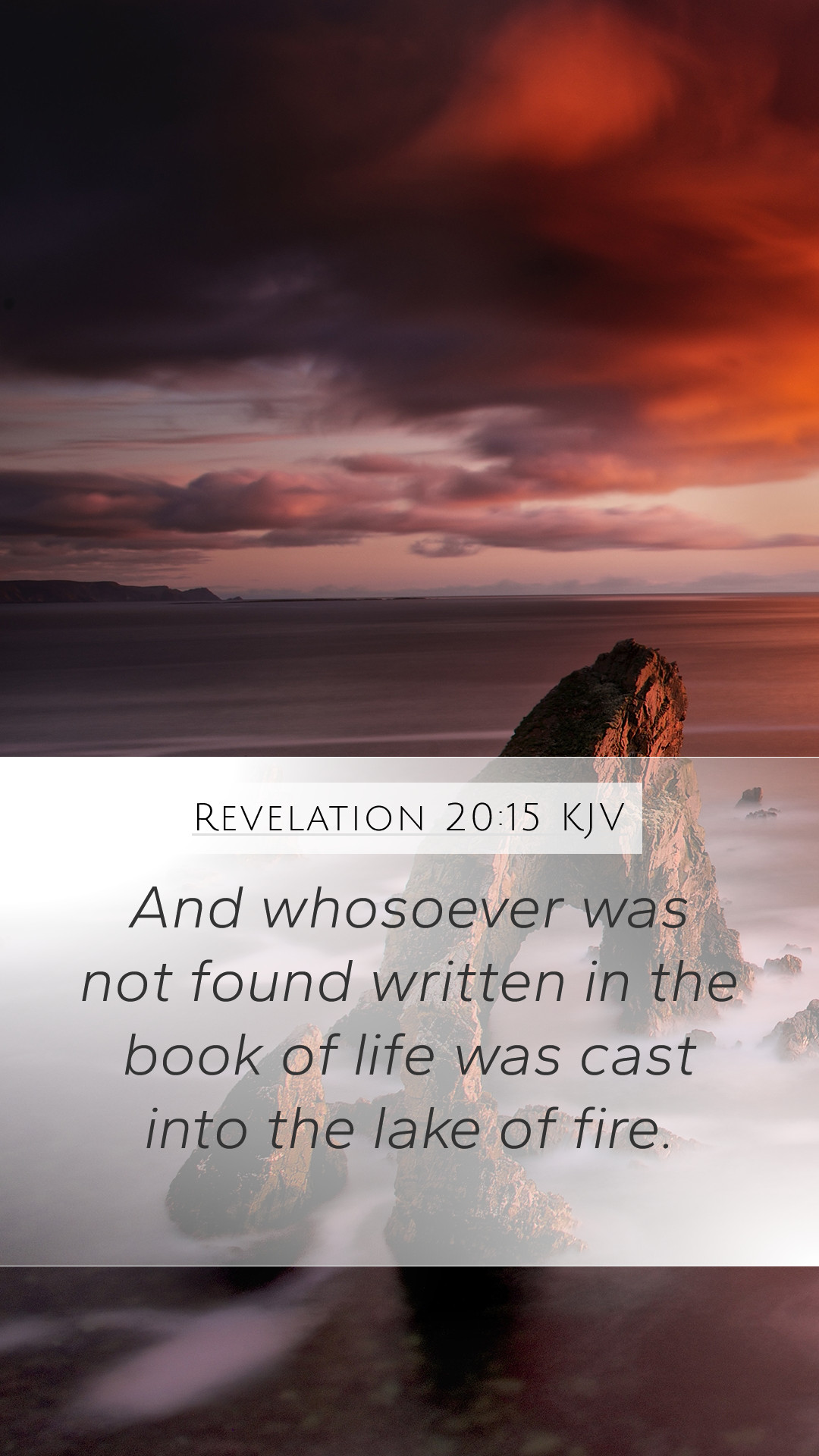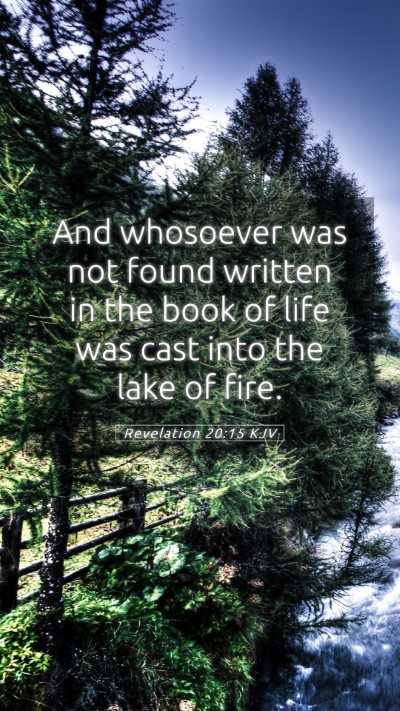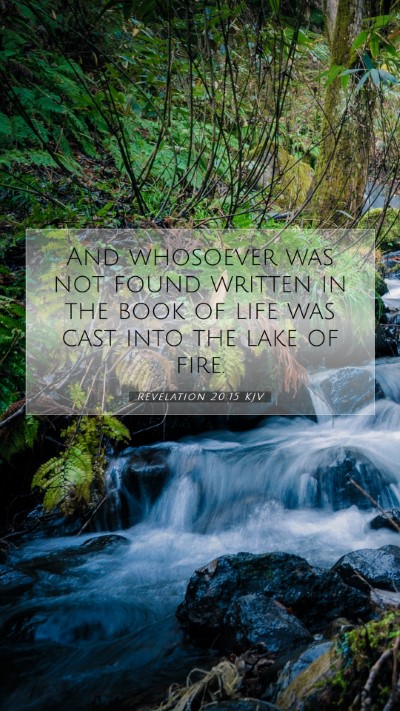Understanding Revelation 20:15
Revelation 20:15 states, "And whosoever was not found written in the book of life was cast into the lake of fire." This verse carries significant weight in eschatological themes, touching on the concepts of judgment, eternal life, and the fate of the unsaved. In this essential Bible verse, we find a profound declaration about the ultimate judgment that awaits humanity.
Bible Verse Meaning and Interpretations
This verse serves as a solemn reminder of the consequences of one's relationship with God. The imagery of the "book of life" signifies God's record of those who have attained salvation. Matthew Henry explains that this book reflects God's grace and mercy, containing the names of all true believers who have been redeemed through faith in Jesus Christ.
Albert Barnes further expounds that the act of being "cast into the lake of fire" symbolizes eternal separation from God. This metaphorical language underscores the seriousness with which Scripture views the eternal state of the unsaved. It evokes a sense of urgency for individuals to seek redemption and a relationship with Christ.
Adam Clarke emphasizes the judicial aspect of this verse, presenting the scene of divine judgment where every individual is examined. He interprets the "lake of fire" as the final destination for the wicked, a place of punishment. This reflects a key element in biblical exegesis: the understanding that one's eternal state hinges upon their acceptance or rejection of God's grace.
Key Themes in Revelation 20:15
- Judgment: The verse illustrates the certainty of God's judgment, asserting that everyone will face accountability for their actions.
- Book of Life: The concept of the book serves as a motif for divine election and grace, highlighting God's desire for all to be saved.
- Eternal Consequences: The imagery of the lake of fire points to the seriousness of spiritual decisions made in life, urging readers to contemplate their eternal destinies.
Application of Revelation 20:15
For Bible study groups or individuals engaging in online Bible study, this verse raises critical questions: What does it mean to have one's name in the book of life? How can we ensure that we are among those granted eternal life? Moreover, how does the idea of a lake of fire influence our understanding of God’s justice and mercy?
Engaging with this passage encourages deep introspection and invites believers to recognize the importance of living in accordance with God's will. Bible study tools, guides, and resources can facilitate a richer exploration of this and other verses that tackle themes of salvation and judgment.
Cross References
- Revelation 3:5 - "He who overcomes will be like them, thus I will acknowledge his name before My Father and His angels."
- Matthew 25:46 - "And these will go away into eternal punishment, but the righteous into eternal life."
- Luke 10:20 - "Nevertheless do not rejoice in this, that the spirits are subject to you, but rather rejoice because your names are written in heaven."
Conclusion
In summary, Revelation 20:15 encapsulates a crucial directive of Scripture that calls for a clear understanding of salvation and judgment. By using Bible verse interpretations and commentary available from various sources, individuals can delve deeper into the meanings and implications of such vital verses. This verse, like many others, highlights the importance of individual responsibility in seeking truth and salvation.


